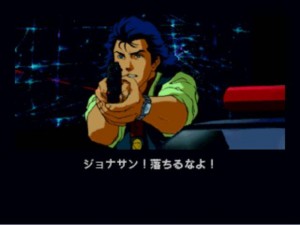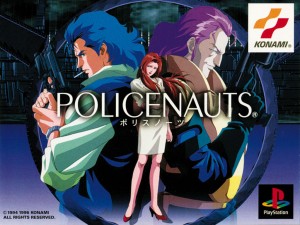My Two Cents: Localize it!
Have you ever seen a trailer for some awesome looking Japanese game and thought to yourself ‘wow, that looks awesome, but it will never be released here’? I think we’ve all been there at some point.
Sometimes the industry sees success stories like Operational Rainfall; a fan driven effort to convince Nintendo to localize games for the Wii. And sometimes loyal fans are ignored, as has been the case with Operation Suzaku; a fan driven effort to get Square Enix to localize Final Fantasy Type-0 for the PSP. Some of these games are deemed by publishers to be simply too ‘Japanese’ to really make sense to a non-Japanese audience, so stay in their homeland.
Not getting a game you really want to play translated sucks. But even if you do understand Japanese and are able to play the game, the situation still sucks because you have no one around you to share the experience with. I know this all too well after having spent over a half-decade learning the language, in part, so I could play all these kinds of games.
What I want to start looking at are Japanese games that never saw official localizations, but which I feel should have. But this column isn’t simply about recommending (or not recommending) games based on how good they are. What I am going to be looking for are games (good or otherwise) that have some kind of renewed value through being experienced from a non-Japanese perspective.
The first of these games is Policenauts.
Policenauts is definitely not one of those games that is too Japanese to be understood by non-Japanese audiences. If anything the core message of the game is something that would be more readily understood by non-Japanese people. So it is a shame that the game has only seen an unofficial fan-translation so far.
So, what is Policenauts? Before Solid Snake graced the Playstation in Metal Gear Solid, series creator Hideo Kojima was taking a long hiatus from the Metal Gear series, instead focusing his creative energies into point-and-click adventure games.
One of those was Policenauts; the game takes place in the not too distant future (well, ‘not too distant’ for Playstation 1 gamers in the 90s). Humanity is taking the first baby steps into space colonization, having sent five elite police officers into space to perform astronaut duties; the so-called ‘Policenauts’.
To cut a long premise short, one day protagonist Jonathan learns of a case that will take him to the very depths of the corruption of a space-faring humanity. This is where Kojima sets the stage to look at, in painstaking detail, the very real challenges a space-faring human race might encounter.
But behind the sci-fi story, Policenauts is about something much more profound; it is Kojima’s cautionary tale for the Japanese people. He warns them of their own obsession with cultural introspection.
The backdrop of the game has something to say about Japan’s isolation and the consequences of that; cultural introversion and arrogance. The setting of the game itself for instance, humanity’s first space colony, is an isolated structure, effectively a Japanese colony that is ruled over by the mighty Tokugawa drug corporation.
You don’t have to look too deeply into it to see the parallels with the isolated island nation of Japan in its closed-country era under the rule of another mighty Tokugawa: the Tokugawa shogunate. For those that don’t know, during Tokugawa rule (1603-1835), Japan implemented a closed-country policy where, with a few exceptions, the country was closed off to foreign trade and cultural influence.
Despite the game being Japanese and written from the Japanese perspective the main characters in the game are Americans who remark on the curiosity of Japanese customs; but dig a little deeper though and you see that many of the stereotypes the main characters hold about Japanese customs are not intended as a commentary on how foreigners see the Japanese.
that many of the stereotypes the main characters hold about Japanese customs are not intended as a commentary on how foreigners see the Japanese.
What is being illuminated here are the prejudices that the Japanese, in their self-affirmation of their cultural uniqueness, have projected onto foreigners. In other words the game is saying that the Japanese feel that they are special because they do things they consider ‘uniquely’ Japanese such as eating natto with chopsticks (to borrow a tired example) and so they assume that foreigners must comment, awestruck, that the Japanese can Japanesely do something so Japanese.
Kojima’s point isn’t that being asked if you can eat with chopsticks is annoying (ex-pats with experience of living in Japan can attest to that), it is that sometimes introspection can go beyond finding one’s own identity to becoming malignant, even manifesting itself as xenophobia.
He warns Japanese people of this because their on-going quest to find unique Japanese-ness is in vain.
The following does not appear explicitly in the game but because the potential link between cultural introversion/introspection and xenophobia might be new to some people I’ve taken the liberty of filling in some blanks that Kojima probably assumed the audience would do themselves.
You are a unique collection of traits; not the sole owner of those traits; and it is the latter that a lot of Japanese efforts at establishing Japanese ‘uniqueness’ are pre-occupied with. Any person involved in that quest would have to pretend not to see or hear all the evidence around them that rejects them as entirely unique. In other words the only way to find deeply convincing ‘uniqueness’ would be found in introspection; shutting all evidence of the contrary, and the outside world, out.
And no matter how long that that introspection would go on the introspectee would never find what they are looking for because it doesn’t exist. Someone intent on introspection is likely to put up barriers between themselves and the outside world so they can go on introspecting. And it isn’t much of a leap between putting those barriers up and actively and aggressively rejecting the outside world.
That is what Kojima appears to be worried about and the real point behind what is otherwise simply sci-fi detective story.
Then again it could be the case that I am simply reading into it all too much, but for what it is worth this is the only game I’ve played where the villain is a Japanese xenophobe…and this is Japanese game written by a Japanese man we are talking about here.
I played the game in Japanese myself (there is a fan translation that has emerged recently), but it must be very interesting as a Japanese person playing the game to hear their own cultural-myths parroted back at them from the outside-in and hearing how ludicrous they actually sound. This was probably what Kojima would hope would happen.
But I can’t help but feel that for many Japanese people, the double-layered message Kojima was trying to get across would have been lost on them. If anything this is one game that most definitely would resound more deeply with non-Japanese people who are able to observe the Japanese from the outside-in.
But Kojima wasn’t talking exclusively about the arrogance of cultural introversion in Japanese people. He also takes issue with the hubris of a mankind that dares to venture out into space. So even if all the culturally specific talk on introversion and arrogance is lost on you, you can still appreciate the wider commentary.
The message here is powerful and, I think, understandable to a wide audience. For that reason, even if it isn’t a particularly great game, I think that Policenauts should have been localised.
Verdict: Localize it!
[Shehzaan Abdulla is a writer for Continue Play, fluent in Japanese language and culture. His views are his own.]






[…] I discussed how more games should be localized for a western audience. In this column, I look at the other side […]
[…] I discussed how more games should be localized for a western audience. In this column, I look at the other side […]